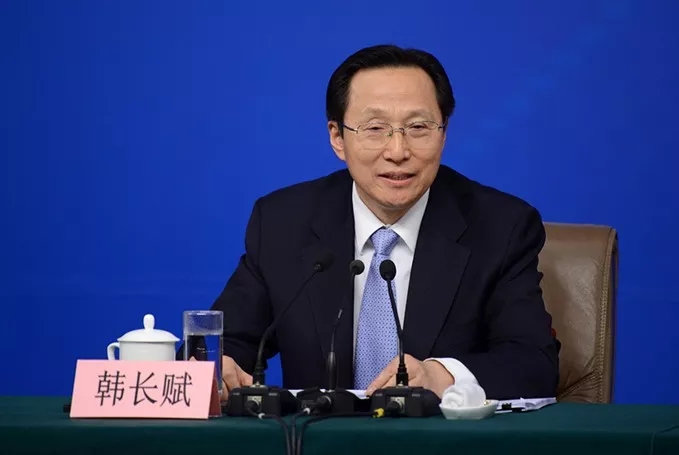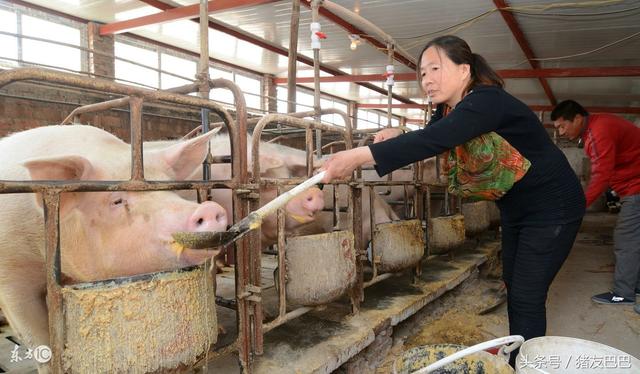Han Changfu, Minister of Agriculture, on the separation of "three powers": a system full of political wisdom

The report of the 19th National Congress of the Communist Party of China emphasized that the system of "three rights" separation of contracted land should be improved. The separation of land "three rights" is another major institutional innovation in rural reform after the household contract responsibility system and an important component of General Secretary Xi Jinping's "three rural" thought. The separation from "two rights" to "three rights" is a system reform that adapts to the development of productive forces, conforms to farmers 'wishes, conforms to rural reality and carries forward the past. It is the advancement of rural land system with the times since the reform and opening up.
General Secretary Xi Jinping pointed out that the main line of deepening rural reform under the new situation is still to handle the relationship between farmers and land. In 2016, General Secretary Xi Jinping presided over the meeting of the Central Committee for Deep Reform and approved and issued the Opinions on Improving the Measures for the Separation of Management Rights of Rural Land Ownership Contracting Rights. The report of the 19th National Congress of the Communist Party of China further emphasized that the "three rights" separation system of contracted land should be improved. The separation of land "three rights" is another major institutional innovation in rural reform after the household contract responsibility system and an important component of Xi Jinping's "three rural" thought.
I. The separation of "three rights" has rich innovative connotation
The evolution course of the separation of "three rights" accords with the objective law that production relations adapt to the development of productive forces. During the period of people's commune, the ownership and management of rural collective land were united, and the land was collectively owned and collectively managed. After the reform and opening up, the collective ownership of rural land and the contracted management rights of farmers were separated, and the land was collectively owned and contracted by families. Since the 18th National Congress of the Communist Party of China, the right to contract and manage land has been divided into contracting right and management right, and the separation of "three rights" has been implemented. This is another major innovation in rural reform.
First, the problem of stability and relaxation has been solved as a whole. The land system is the basic system of the country, and we should have historical patience on the land issue. From the separation of "two rights" to the separation of "three rights", on the basis of stability and with the goal of liberalization, we adhered to the collective ownership of land, stabilized the contracted rights of farmers, relaxed the right to land management, promoted the rational allocation of rural resource elements, promoted the development of various forms of scale management, and further liberated and developed rural social productive forces. There are always people who think that one household cannot modernize and that contracted land should be recovered and collective management implemented. However, returning to collective unified management has long proved that this road will not work. The separation of "three rights" creatively deals with the relationship between change and change. With the unchanged collective ownership of rural land, the basic status of family management and the relationship between land contracting, it adapts to the flow of land as a factor of production and the diversification of agricultural management methods. It conforms to the wishes of farmers to retain the contracting rights and transfer the management rights. It neither returns to the old road of people's communes returning to a large pile nor denies the basic status of family contracting management, thus promoting the intensification, specialization and specialization of agricultural production and management. Organizational and socialized development makes the basic rural management system more full of lasting institutional vitality.
Second, the problem of fairness and efficiency has been solved as a whole. Land is the mother of wealth. The separation of "two rights" and the implementation of equal land contracting for farmers have guaranteed the basic right of survival and development of every rural population and solved the problem of food and clothing for more than one billion people. However, in the process of land subcontracting, many places carry out flood and drought, fat and thin, far and near matching, resulting in the fragmentation of contracted land. The average cultivated land per household in China is 7.5 mu and 5.7 pieces, making it difficult to improve agricultural production efficiency. The separation of "three rights" has found an effective way to give consideration to fairness and efficiency. Through the circulation of land management rights, it promotes the negotiation and exchange of management rights, land consolidation, and realizes small block to large block and continuous management; through the circulation and trusteeship of management rights, it develops various forms of moderate scale management, and improves land output rate, labor productivity and resource utilization rate.
Third, we have solved the problem of closure and openness as a whole. China's rural land contract adopts the household contract mode within rural economic organizations, and only members of collective economic organizations are qualified to contract land. Under the separation system of "two rights", the right to contract and manage land is together, whoever contracts and manages, the contractor is the operator, and the right to contract and manage has certain closeness and exclusivity. After the separation of "three rights", the separation of contracting right and management right has been realized. Contracting right is the right of membership, which operates in a closed way in collective economic organizations and protects the legitimate rights and interests of collective economic members; management right is usufructuary right, which is open and social. In this way, rural land can be managed by the villagers, and the management right can be transferred to the villagers or to the urban people, thus realizing the optimal allocation of land resources in a wider range.
Fourth, we have solved the problem of migrant workers and "who will farm the land" as a whole. In recent years, with the transfer of a large number of rural labor force to urban areas and secondary and tertiary industries for employment, the rural young and middle-aged labor force has been greatly reduced. In addition, the agricultural production cost has been rising continuously, the agricultural operation benefit has been continuously reduced, and the problems of part-time employment, aging and feminization of agricultural labor force are prominent. The separation of "three rights" has promoted the circulation of land management rights. More than 70 million of the 230 million rural households in China have transferred land, accounting for nearly 30%, promoting the division of labor and business in rural areas. Migrant farmers enter the city at ease, new professional farmers thrive, farmers work and farm in their own places, new business entities flourish, and the problem of "who will farm" in rural areas is solved. At present, there are 2.7 million new business entities and more than 12 million new professional farmers in China, becoming a new force and leader in the development of modern agriculture.
- Prev

There was a conflict between father and son in order to cut down trees, but there are still these stories behind a crispy orange.
There was a conflict between father and son in order to cut down trees, but there are still these stories behind a crispy orange.
- Next

"Pig does not make money, look back at the field," this rural proverb has what enlightenment?
"Pig does not make money, look back at the field," this rural proverb has what enlightenment?
Related
- A course of planting techniques and methods on how to grow carrots
- How to plant the latest tulips?
- Is it better to pick tea in the morning or in the afternoon? When is the best time for tea to be picked? what is the third or fifth tea?
- Launch Yuanxiao Happy combination Haocha + Tea Yuan healthy Taste
- Penghu Tourism "Fireworks 20 Parade with You"
- 2022 West Lake Happiness holds "Digital Revitalization Voucher" and draws iphone13 and laptop.
- Banqiao Fuzhou social houses are designed to change start-up combined with police elimination to create a safe and livable environment
- The convenient measure of "mechanical weeding" in Xinbei has been abused and the Agriculture Bureau has imposed heavy penalties on the illegal land consolidation.
- Changgeng University Joins Hands with Four Memory Factories to Rescue Memory Talent Shortage
- The list of Taiwan's top 100 MVP managers is listed by the Director-General of the Farmers' Association of Sanxia District.

